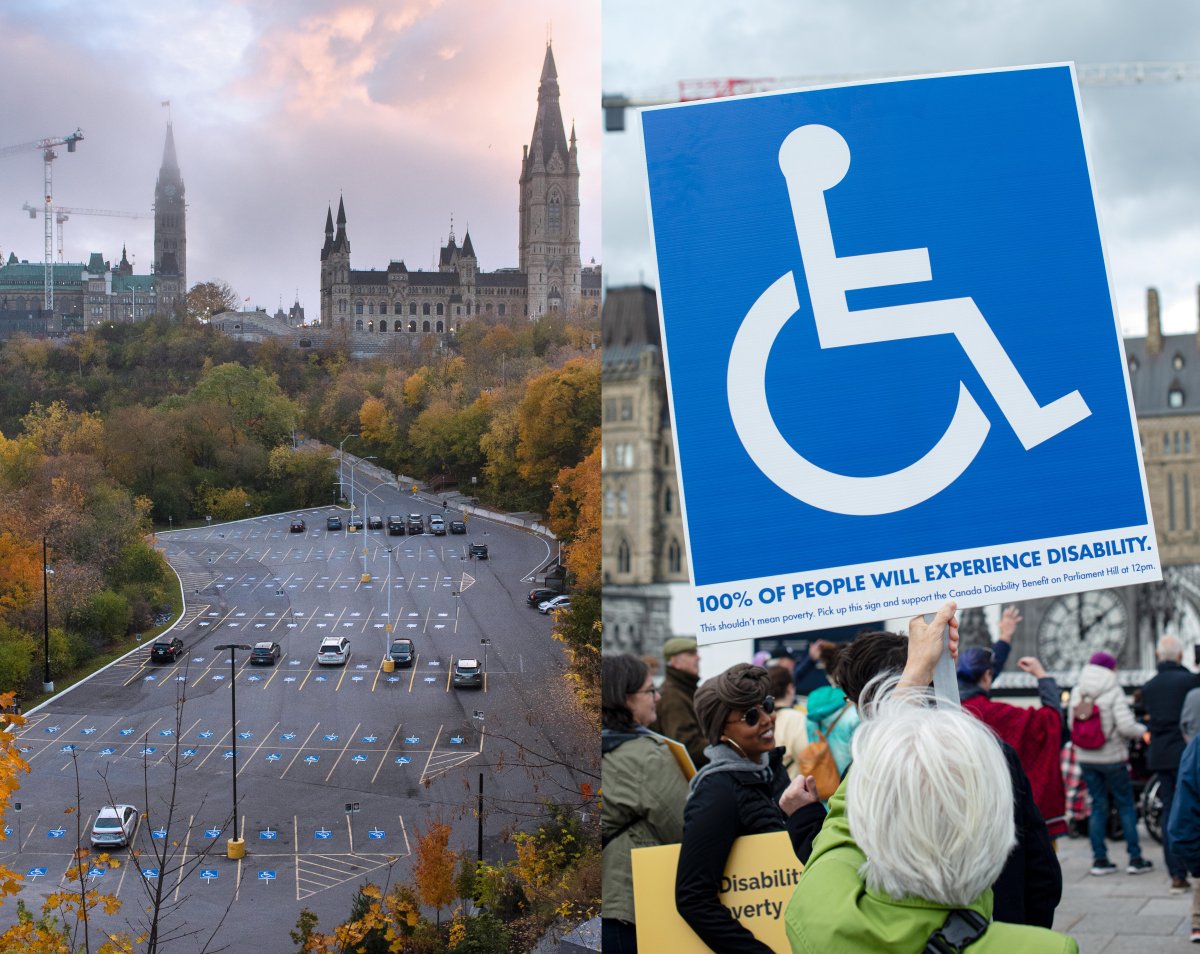As the cost of living continues to soar, Canadians with disabilities are fighting for financial support from the federal government in the face of a possible recession.

Sponsored by Minister of Employment Workforce Development and Disability Inclusion, Carla Qualtrough, the government is working to establish federal support for Canadians with disabilities who are living in poverty.
Known as the Canada Disability Benefit Act, a “consequential” amendment to the Income Tax Act would also be made should it pass.
Advocates are urging the government to move on it quickly.
“People with disabilities face barriers in our society. People with disabilities living in poverty face even further barriers,” Rabia Khedr, national director at Disability Without Poverty (DWP), told Global News.
“This struggle to survive with dignity is becoming worse and worse for people with disabilities,” she said.
The bill was first introduced in 2021 before the last federal election and numbered C-35. But as parliament dissolved, the bill stalled.
“It died with the end of the last parliament,” Khedr said.
Reintroduced as Bill C-22 this year on June 2, the act passed its second reading with unanimous support in the House of Commons on Oct. 18.
“We are pushing really hard for this benefit because for people with disabilities — with rising inflation and the ongoing circumstances around pandemic recovery — they’re falling even further behind than they were pre-pandemic,” said Khedr.
“This benefit is going to be a life saver.”
Khedr, who has been a part of DWP since its inception at the beginning of 2021, wants to see the bill passed this year and funds delivered by next fall.
“Pass Bill C-22 in 2022. Let’s not delay,” she said.
On Oct. 19, DWP showed their support for the bill by rallying at Parliament Hill in Ottawa. They used their protest signs to transform parking spaces across the downtown into accessible spots.
“Imagine if everything was, in fact, accessible around us,” Khedr said.
Who would be eligible?
There are still unanswered questions when it comes to eligibility and how much people would receive from the government under the benefit, but once passed, the particulars will be made clear as part of the Regulatory process, according to Tara Beauport, press secretary for Qualtrough.

Get daily National news
“The details of the benefit, including the benefit amount, and eligibility criteria, will be informed by engagement with persons with disabilities and the provinces and territories,” Beauport told Global News.
“We’re working hard and fast to get this done for Canadians. Throughout this time, we haven’t stopped working to support people in need, including people with disabilities,” she said.
There are still questions about how the act will be federally coordinated with other provincial benefits, but the government is “working closely with the provinces and territories to ensure harmonization on the design,” Beauport said.
“The Minister’s number one concern with this benefit is to ensure that everyone who receives it is better off. This in an income supplement, not an income replacement,” she said, noting the bill is a priority for the federal government.
“Twenty-three per cent of Canadians identify as having a disability. We are the largest minority. We are a family member, a friend, a neighbour and a co-worker,” Qualtrough said during a speech in the House in Sept.
“The disability community is vibrant, talented and diverse,” she said.
“Bill C-22 would give us the opportunity to send a clear message to working-aged persons with disabilities and, quite frankly, to every person with a disability that we will no longer sit by and watch them struggle to make ends meet, struggle to live with dignity, struggle as they live a life of uncertainty and poverty.”
Earlier this month in parliament, Qualtrough noted passing this bill would lift “hundreds of thousands” of persons with disabilities out of poverty.
“This bill could be a game-changer in the lives of so many people,” she said.
Now that the bill has passed a second reading, the House of Commons Standing Committee on Human Resources, Skills and Social Development and the Status of Persons with Disabilities (HUMA) is undertaking a study and as of Oct. 29 has asked Canadians to submit written briefs for their review of the benefit.
However, even after the bill passes the committee stage there is still a long way to go before it officially becomes law.
When the study is completed, there will be a report stage and a final reading in the House before the bill reaches the Senate.
Why is it important?
Though inflation is slowing — down to 6.9 per cent in September compared with a high of 8.1 per cent in June — it remains one of the biggest concerns both for Canadians and the government.
The Bank of Canada has been combating decades-high inflation with aggressive interest rate hikes since March. The central bank raised interest rates last week for the sixth time this year, with the half-percentage point rate hike bringing its key interest rate to 3.75 per cent.
According to Khedr, it’s time to help people with disabilities.
“Investing in lifting people with disabilities out of poverty, of ending disability poverty, is also an investment in our economy,” Khedr said.
“People with disabilities have the buying power of $47 billion in our economy. We will be adding a few more billions if we give them a top-up benefit that will stimulate the economy and benefit us all.”
Though there is still more work to be done, to see the bill passed would be an “important milestone in the journey of improving the quality of life for people living with disabilities,” for Khedr.
“This will provide them the dignity they need to live and thrive,” she said.
— With files from the Canadian Press










Comments